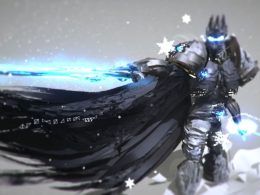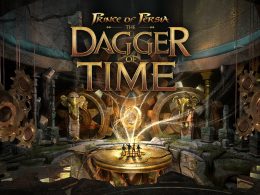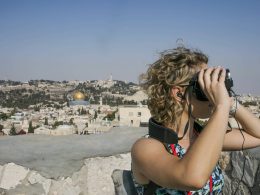An exclusive multi-part VR story starts with Francis and Amilia, which will be continued every fortnight. As soon as a new part is released, we will communicate this via Twitter and Facebook one day in advance.
As soon as Francis woke up, he wrote down what he had dreamt in order to continue it in virtual reality. As a child, he remembered many dreams, but hardly ever picked up on them the following night, rarely continuing the story in his sleep. If it was significant enough for him, he would make a note of what he had remembered: he would close his eyes once more to bring back the images in his waking life before they faded away completely and were lost. He let new ones arise within him, put them into words, used them to continue the story that seemed unfinished and, if possible, tried to bring it to a new conclusion. In this way, he tried to better understand what he had dreamed, which was often only remembered in fragments. He did not continue every dream, he did not want to explore each one further, some seemed to make enough sense in themselves. However, he could not get away from one that had haunted him almost nightly for months and could not bring it to a satisfactory conclusion. The dream returns in versions of itself, each of which he puts on paper and processes further - just before his waking inner eye, since the day before yesterday in virtual reality (VR) and with the intention of not resting until he has recognised the dream at its core.
Using the VR system WeAre TM, he feeds every variation into the virtual space: he takes out his neurolenses, which, once held in his fingers, attach themselves to the respective eye and organically connect directly with the brain. Francis reads out what he still remembers of the dream, creating replicas of the dreamed images within him, which in turn become visible to the outside world via the lenses and which he can change. Every new image that arises in him appears before his eyes. He can move through the images in the real space into which the virtual reality is projected, and because it expands, Francis has no physical boundaries to observe - a new technique with which the VR system dematerialises space that is unused somewhere on earth and rematerialises it in the projection space, while virtual space that is no longer used is transferred back to its origin. The projection space adapts to the images that Francis' produces from within. When he climbs a mountain, for example, the space takes on the gradient. If he holds on to a tree as he climbs, he does not feel the trunk itself, but something with the same material density. He perceives the odours of the projected surroundings, which he associates with having been on a hike with his parents as a child and crossing a pine forest: Jets couple themselves to the memory closest to the virtual images olfactorily and are distributed through them in the room. Sounds such as a bird circling above him are fed from his auditory memory and sampled by a sound chip in his inner ear. If Francis takes a snack, such as a nutrient gel, as he ascends, the system simulates the taste on Francis' tongue because he knows the flavour from the real world. However, he cannot feed on the gel in the virtual world. There is no bird circling above him for which he has no inner image. He would not hear it screeching if Francis could not find the screeching within himself. What he hears, tastes, sees, smells and touches in the virtual space is what is already there for him to create. In the projection room, he lives from the tin can of his being, and he barely manages to have new experiences in the real world. Here and there he feels that he is missing them, but the attraction of virtual life is so strong that he feels as if he is too weak to escape it at least to the extent that the everyday world is not virtual for him. The real world serves him little more than to preserve himself for it.
Accordingly, he spends most of his time in the projection room, orders food to his home, takes care of himself first and foremost because a lack of personal hygiene could disrupt the odour experience in virtual space, and has bought himself an expensive Medimech TM to look after him in the event of an accident or illness. He has enough income, as he works from home and is paid handsomely with the digital currency he developed himself. He can live off the revenue share he secured by selling the product to the company, which was only expecting a marginal profit when it was launched. Nevertheless, the company now defines itself mainly through trading in the currency and so Francis is a financial thorn in their side as a shareholder. He himself is therefore happy to see no urgent reason to leave the company with his income.
Every now and then someone comes to visit him, one of his few friends or whoever he calls everyone else. There are times when he gets up the courage to meet someone in the café round the corner. He usually turns down invitations to someone's home with thanks, as he is often said to be too busy with his work - by which he does not so much mean his work developing the digital currency as a means of payment. Rather, he is talking about his obsession with the virtual world, which keeps him busy even beyond his dreams and in which, as Malte and Fiete believe, he is in danger of losing himself. As Francis' friends, they both endeavour to win him back to the real world more and more. Francis is largely reluctant to do so, but at times he also realises that Fiete's and Malte's concerns are justified and keeps them close to him. As far as Amilia is concerned, he cannot bear to have her within his immediate reach at the moment. Nevertheless, he is keen to confide in her in his fear for himself. And so he writes her letters, just one more ...
Author: Tim Komáromy© (tk)









